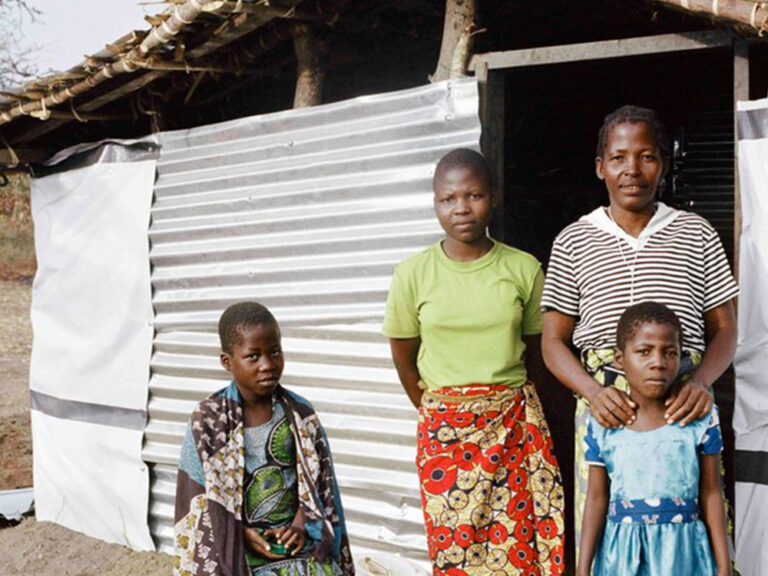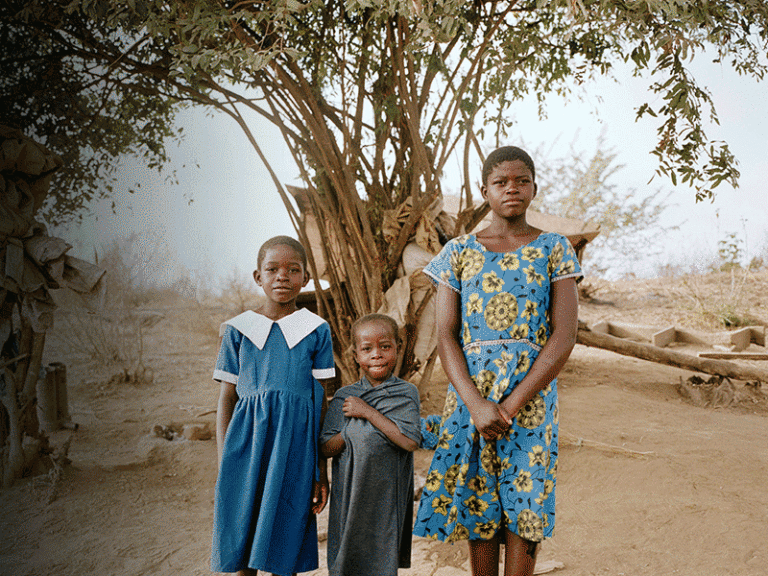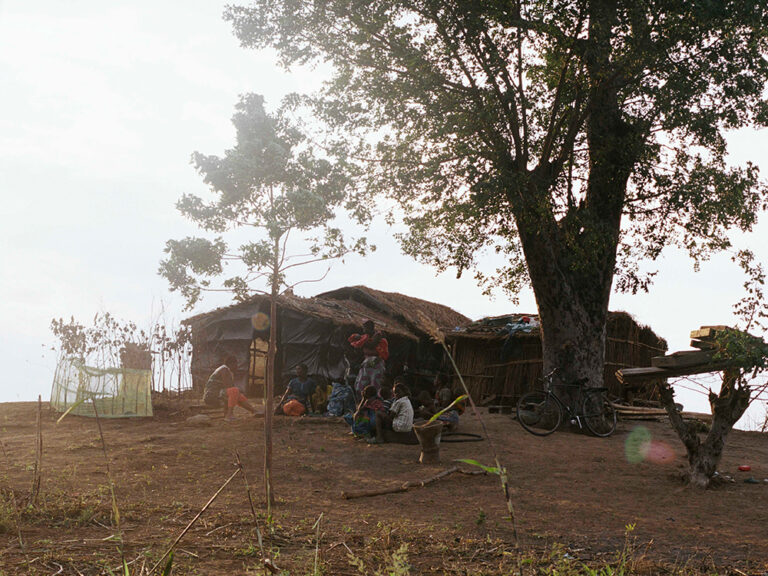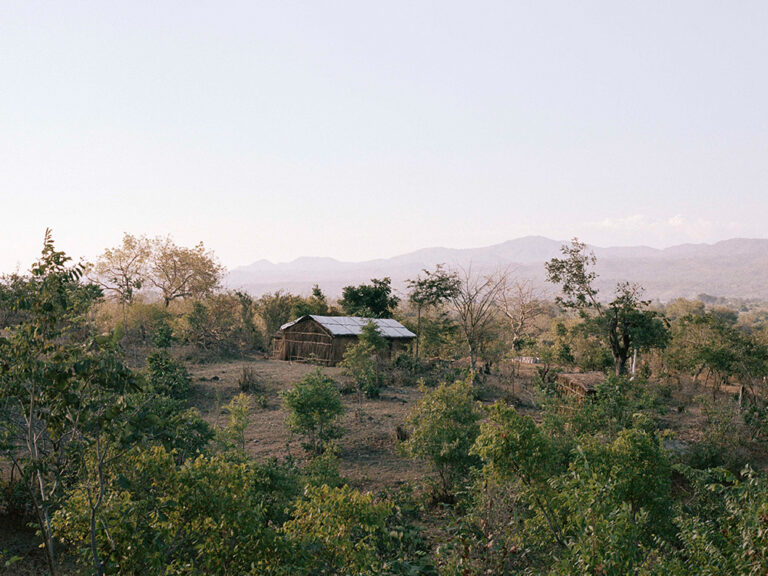We returned to understand what the recovery process has been like. Joined by renowned photographer, Sian Davey, we celebrate the incredible things that these families have achieved.
Here, Stephano and Mary, from the community of Mwalija tell their story of home.
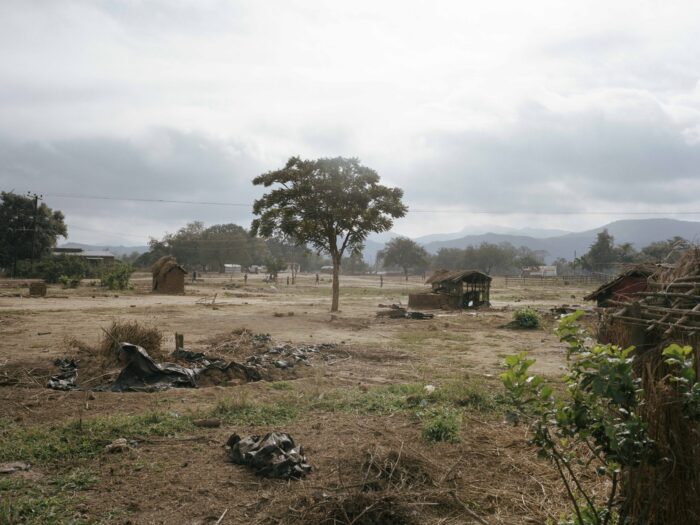
On the day of the flood the rain started at 5pm, but the flood that caused houses to fall started at 11pm. By the middle of the night, all the houses had fallen. Our livestock were getting carried away with the water. The crocodiles were so close to us, attacking the cows.
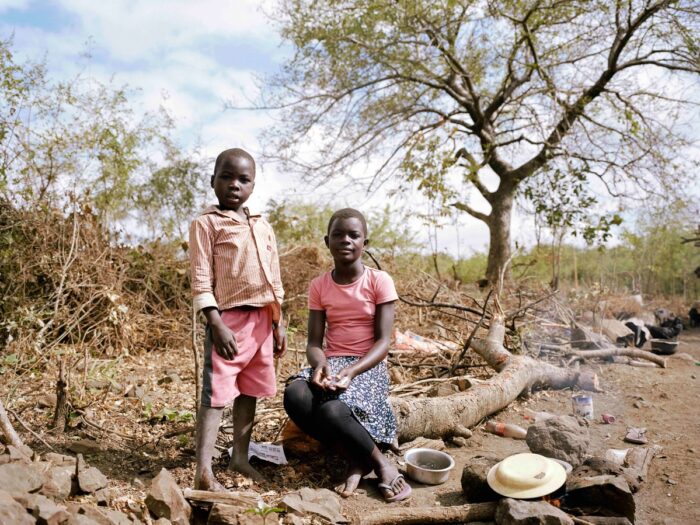
We were working hard to save our children who have not yet tested the world. This is why we put them in the trees. When we saw there was more water coming, we would take them to a higher tree. We stayed for 24 hours in the water.
– Stefano
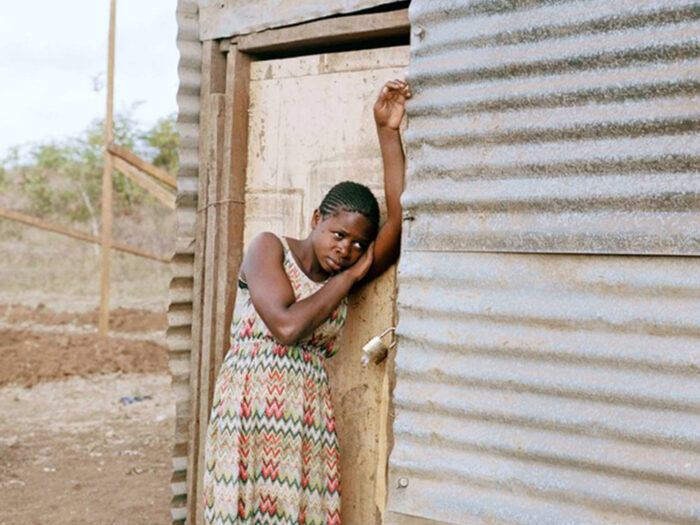
Families in Mwalija created a place where their everyday life can resume.
Everyday activities like cooking, cleaning and relaxing are a fundamental part of all our lives.
We want a place where when we wake up we are able to clean it, look after the surroundings and take care of it. To me that makes a home.
– Isaac
Families in Mwalija created a place where their everyday life can resume.
Everyday activities like cooking, cleaning and relaxing are a fundamental part of all our lives.
We want a place where when we wake up we are able to clean it, look after the surroundings and take care of it. To me that makes a home.
– Isaac
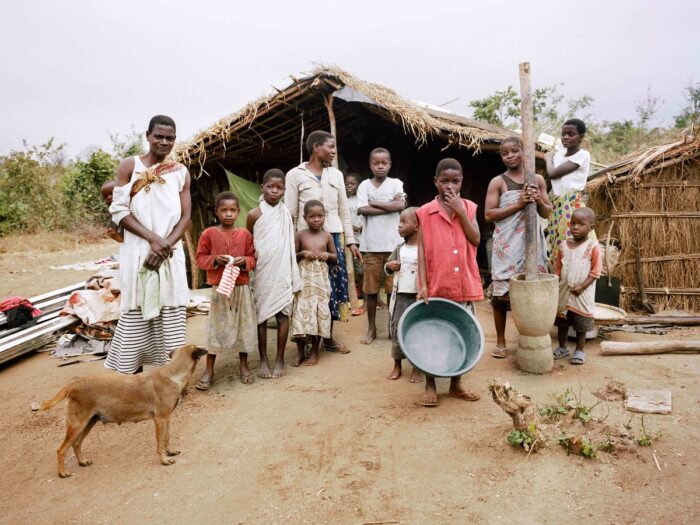

A home means a good night’s sleep. It’s a place to find privacy and time to yourself. To spend time with family. It’s somewhere where you can feel safe and secure. It’s a place to cook, to play, to work, to laugh. It’s a place to start again.
By moving away from the temporary camp where they fled to after the floods, the families of Mwalija created a space they could call their own. A space that could be cleared for farming. A place with a future.
My meaning of a home has changed now, this place is now home. But in its current state, it’s a home of hope.
– Stephano
Rebuilding as a community
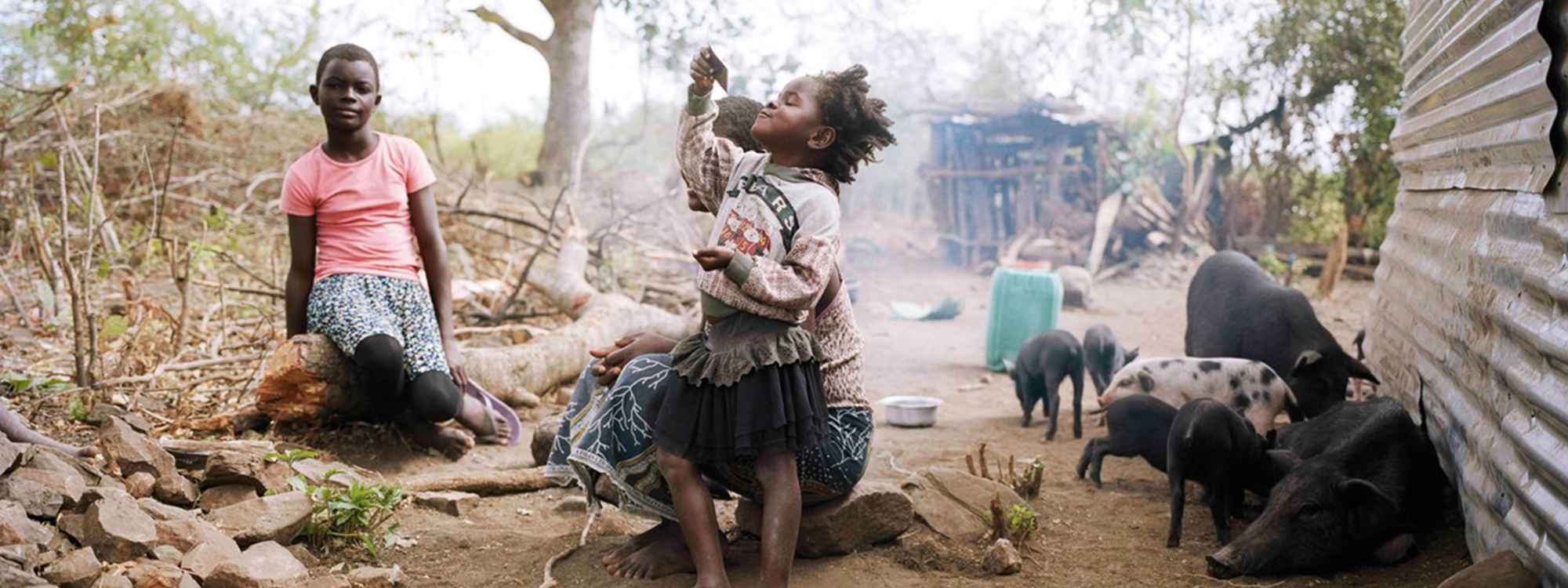
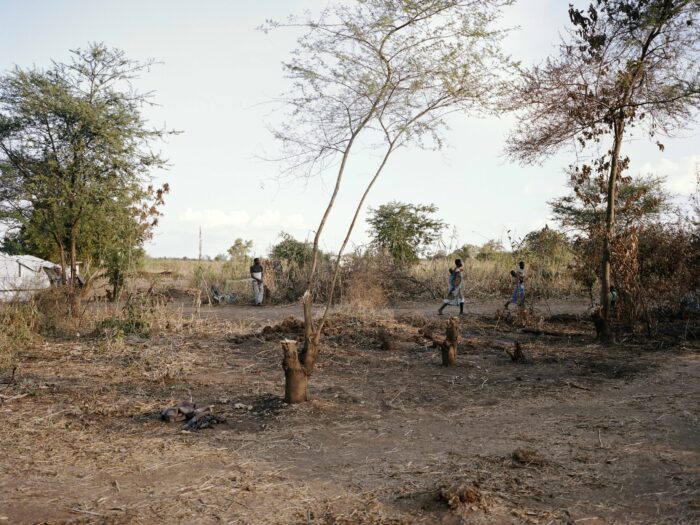

In the months that followed Cyclone Idai, Mwalija came together as a community to rebuild.
What gave us the strength to move from the camp to this place were the tarpaulins that we received. When we came here, we had space, we could live freely.
– Mary
Community, whether a village, group or extended family, helps recovery in many ways.
Living with friends, family and neighbours around you provides physical, material and emotional support. Communities work together and help each other. Communities help people to earn a living and build resilience. A strong community lifts the spirit of the people living in it.
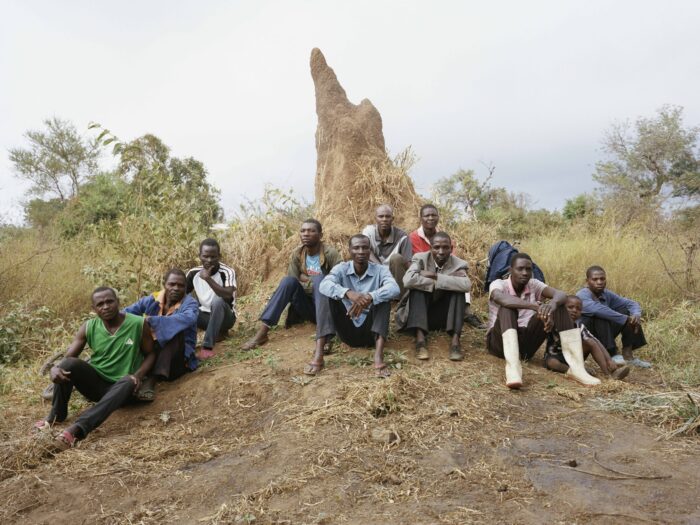

By working together, it took the community of Mwalija just three months to relocate the village.
Working this quickly avoided breaking up the community, and people who were thinking about moving away were reassured to stay.
The tools and emergency shelter gave the village community the confidence to make decisions like relocating.
Below: Church plays an important role in community life in Malawi. Everyone dresses in their best clothes. On Sunday the sound of singing filled the air as families walked down the dusty track from their church to the river to baptise new members of the church. After two hours at the river, 21 people had been baptised.
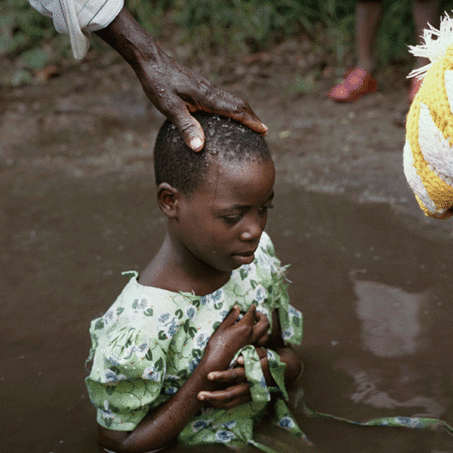
Returning to work
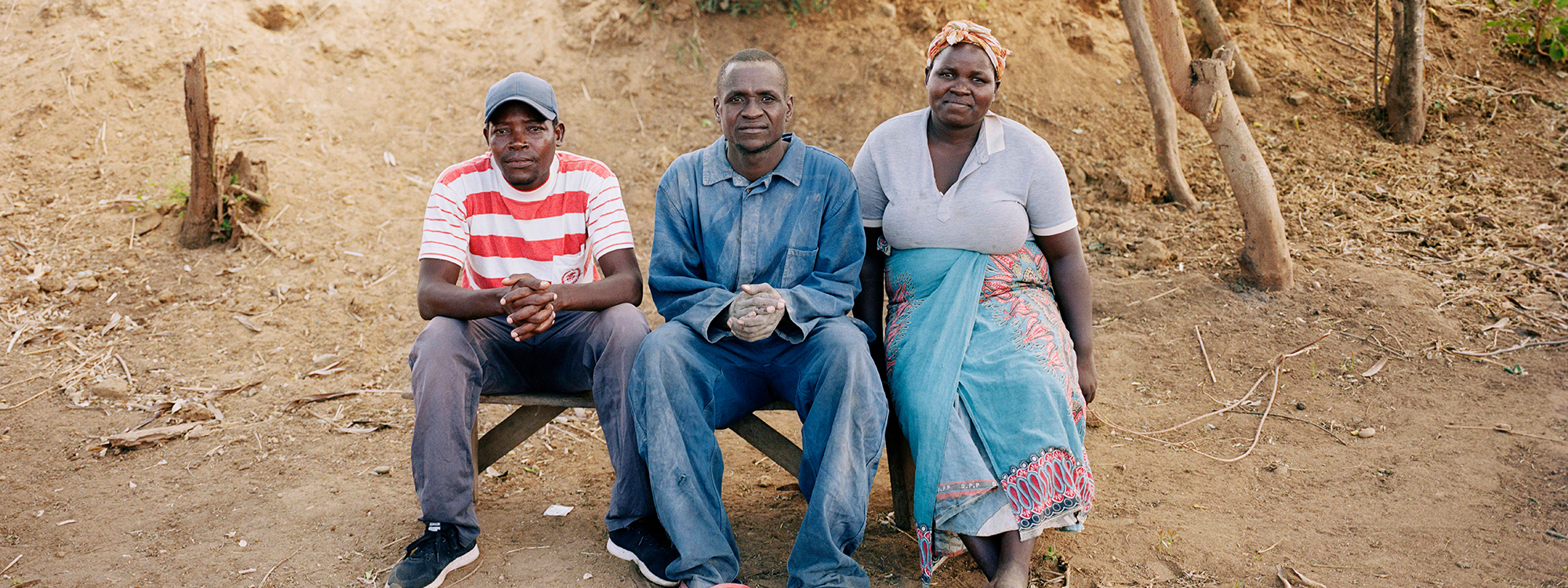
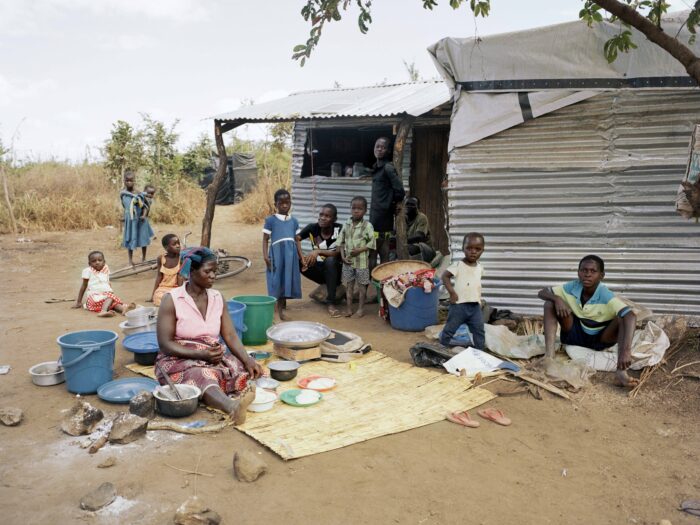

By returning to work and starting to farm again, families in Mwalija could grow food, earn a living and, most importantly, take back control of their lives after the disruption of Cyclone Idai.
Being able to earn a living creates independence and builds resilience to future knocks. Getting back to farming the land shows that the people of Mwalija have an eye on the future.
From a psychological perspective alone, returning to work allows people to get back on their feet and imagine a vision for the future.
I have plans. Next week I will be planting maize, onions and tomatoes. So that those crops, tomatoes and onions will help me raise money for the house. That’s why we work, because we are looking to the future.
– Stephano


Emergency shelter is deeply connected to livelihood. Providing tools offers people the equipment that they need to work the fields or support trades.
Shelter can support communities to move back home or to a new site where they are better situated to tend to crops or keep livestock. Homes can also become shops or work places.
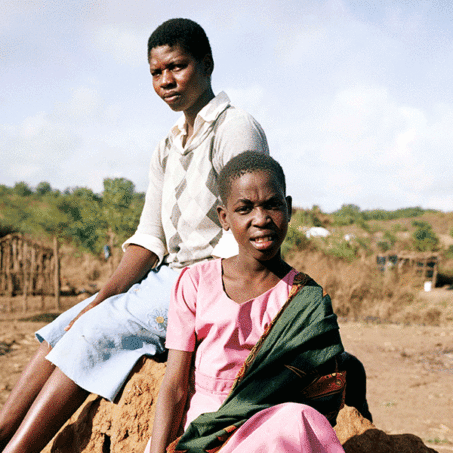
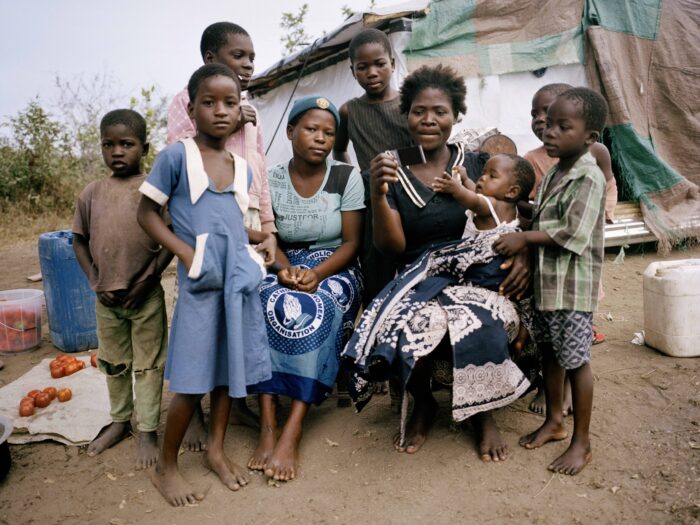

Families in Mwalija started rebuilding their homes using local techniques and some new skills that they learnt from our training.
Building a shelter needs skills and knowledge, especially if it’s going to stand firm while communities work to repair or rebuild their permanent house.
For some people, like Stephano, this was second nature as he drew from his previous experiences. But others needed help and guidance to build their new shelter.
Training can provide new skills that communities can share with each other. This helps people to rebuild using local techniques alongside tried and tested methods.
A hammer does not build a home. But a hammer in the hands of someone with the knowledge, desire and motivation to build a home will.
Aid and training have helped the community of Mwalija to create a new village on higher ground where they feel more secure and can look to the future.
Thank you
Thanks to your generous support, 2,000 families in Malawi have started rebuilding their lives.
People like Stephano and Mary have taken control of their own recovery by creating a space where their families can return to everyday life. By coming together as a community to support each other physically and emotionally. By returning to work and making plans for the future.
We can’t claim responsibility for the recovery of communities
– that credit can only be given to the families who have worked so hard to rebuild. But, with your support, we have played a small and important part in those first steps to recovery.
Find out more about Cyclone Idai here.
Learn more
